Find Help
More Items From Ergsy search
-
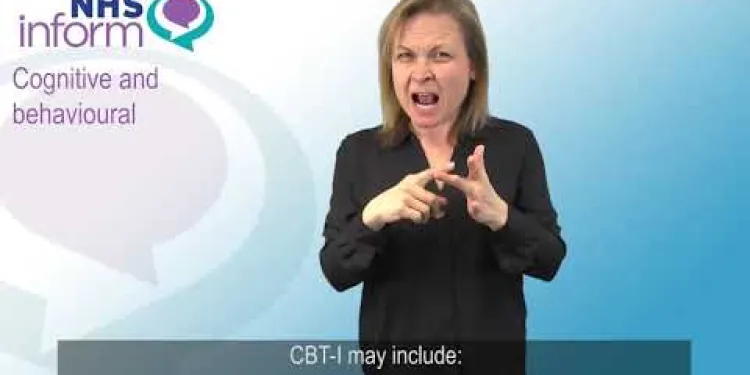
BSL - Treatments for insomnia
Relevance: 100%
-
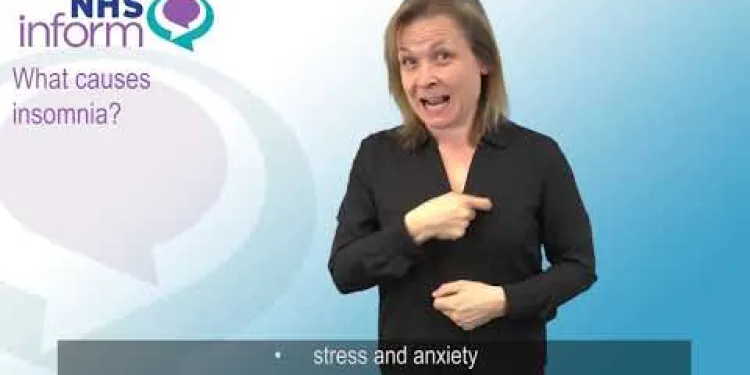
BSL - Insomnia introduction
Relevance: 75%
-
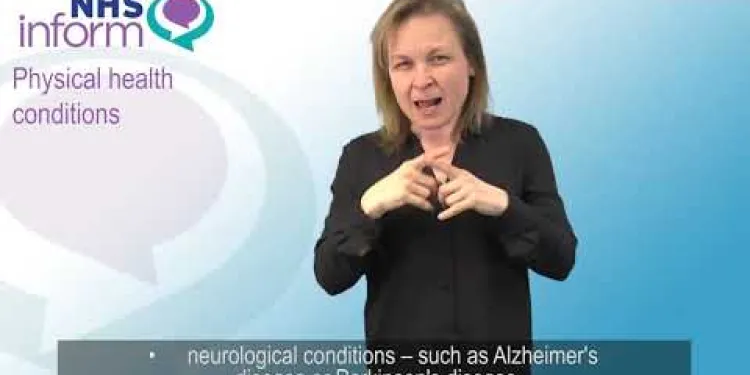
BSL - Causes of insomnia
Relevance: 73%
-
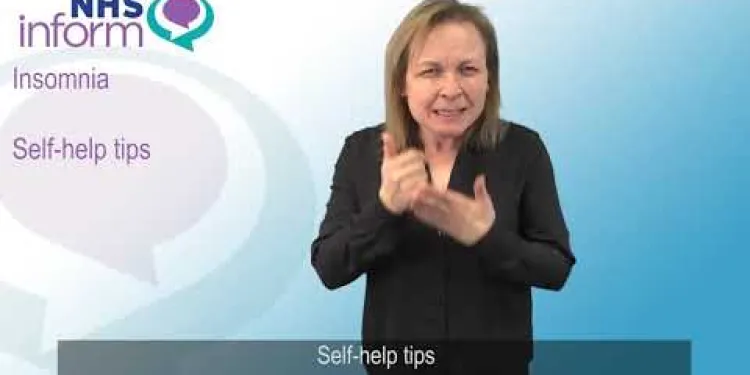
BSL - Insomnia self-help tips
Relevance: 71%
-

Is insomnia a common side effect of weight loss drugs?
Relevance: 62%
-

Talking therapy 'should be offered before pills' for people with insomnia | NHS Behind the Headlines
Relevance: 61%
-

What are the side effects of Paillon treatment?
Relevance: 31%
-
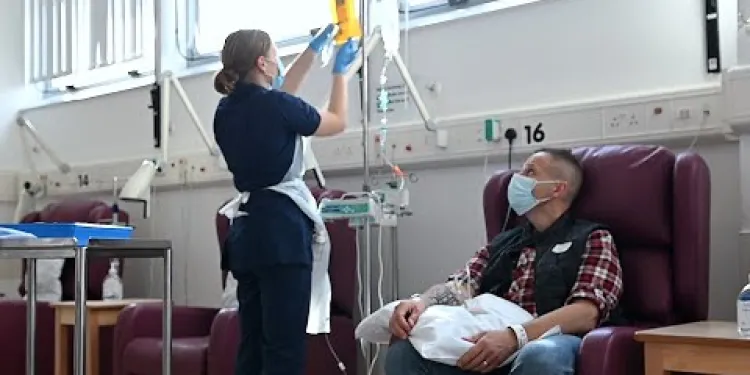
Having chemotherapy and other treatments in the Day Treatment Unit
Relevance: 31%
-
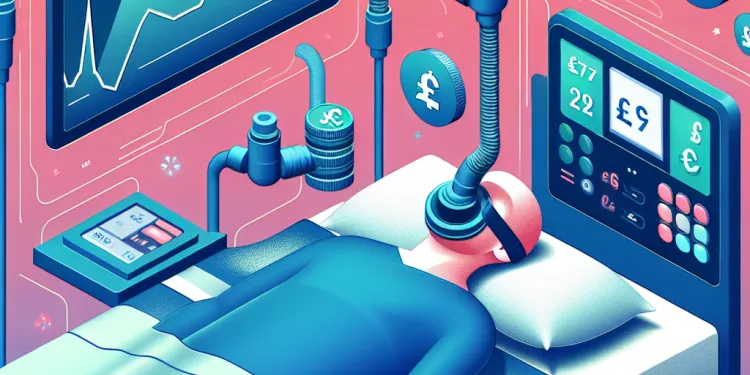
Is CPAP the only treatment for sleep apnea?
Relevance: 30%
-
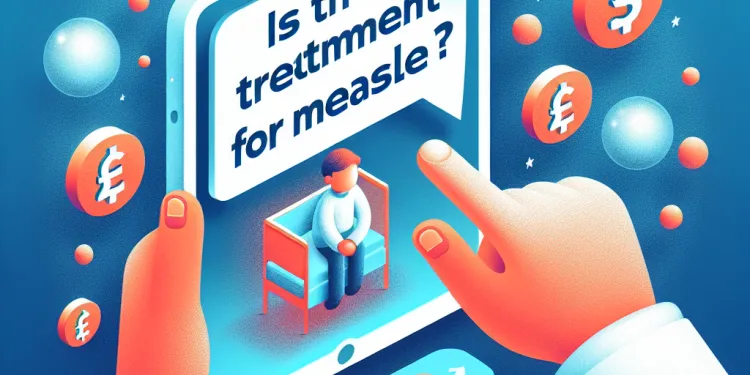
Is there a treatment for measles?
Relevance: 30%
-

Is there a treatment for measles?
Relevance: 30%
-
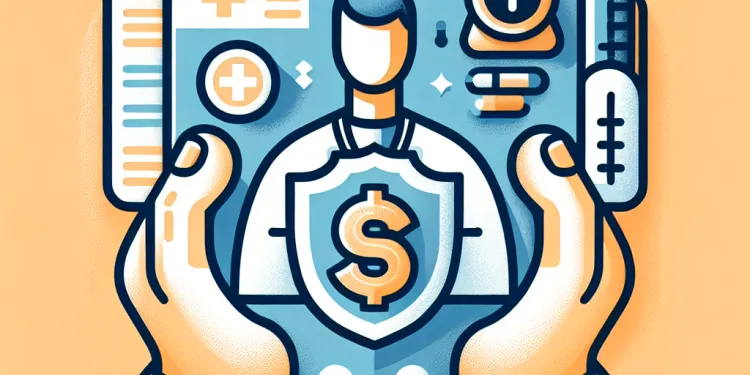
Are chiropractic treatments safe?
Relevance: 30%
-

Is Botox treatment expensive?
Relevance: 29%
-
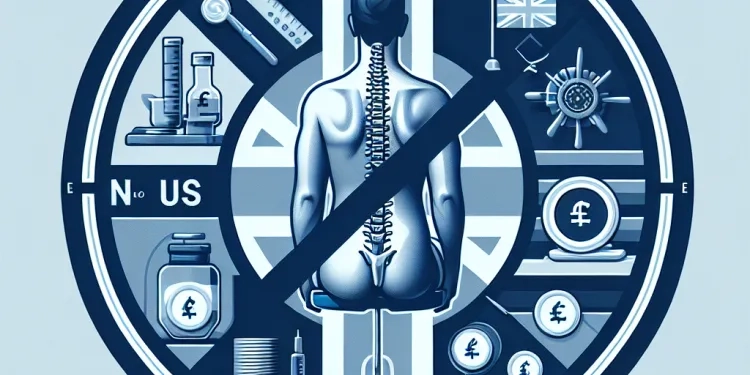
Are chiropractic treatments painful?
Relevance: 29%
-
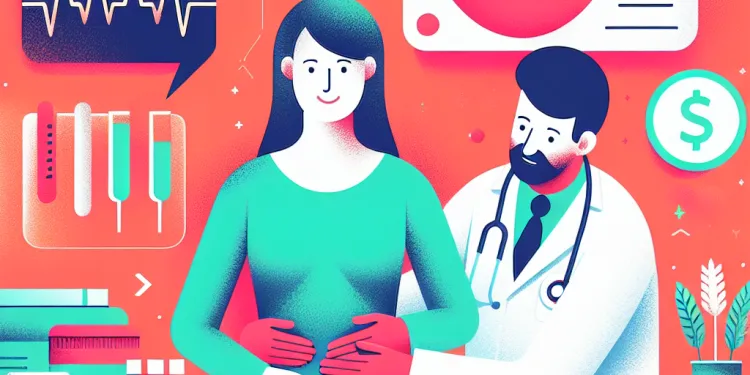
What is the treatment for appendicitis?
Relevance: 29%
-
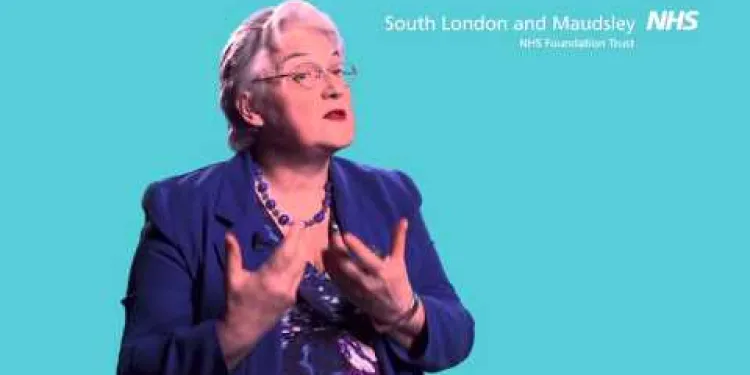
Eating disorders: treatment
Relevance: 29%
-

What are the side effects of bowel cancer treatment?
Relevance: 29%
-

Is Paillon treatment a form of chemotherapy?
Relevance: 28%
-

What is Paillon treatment for cancer?
Relevance: 28%
-

Who developed the Paillon treatment?
Relevance: 28%
-
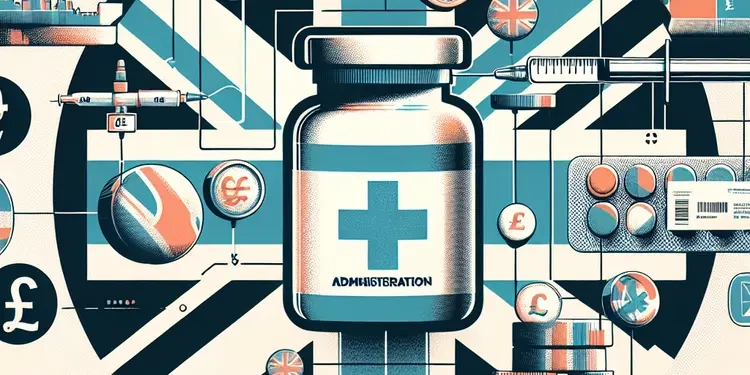
How is Paillon treatment administered?
Relevance: 28%
-
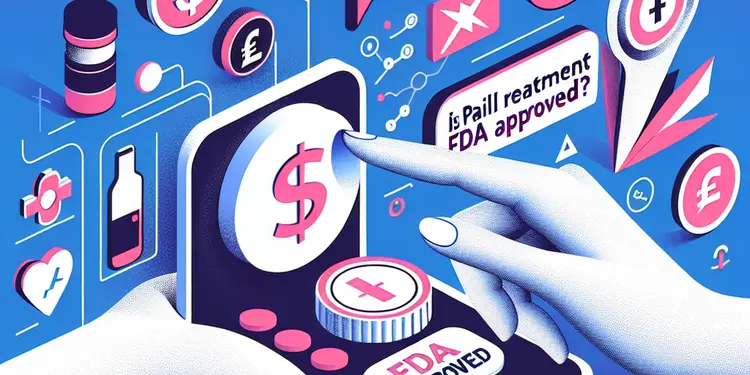
Is Paillon treatment FDA approved?
Relevance: 28%
-

Is a prescription required for Paillon treatment?
Relevance: 28%
-

Fertility treatments on the up, but not via the NHS
Relevance: 28%
-

What are topical treatments for psoriasis?
Relevance: 28%
-

What treatments are available for eczema?
Relevance: 28%
-

What is the treatment for chickenpox?
Relevance: 28%
-

Are homeopathic treatments covered by the NHS?
Relevance: 28%
-

Are inhalers the only treatment for asthma?
Relevance: 28%
-
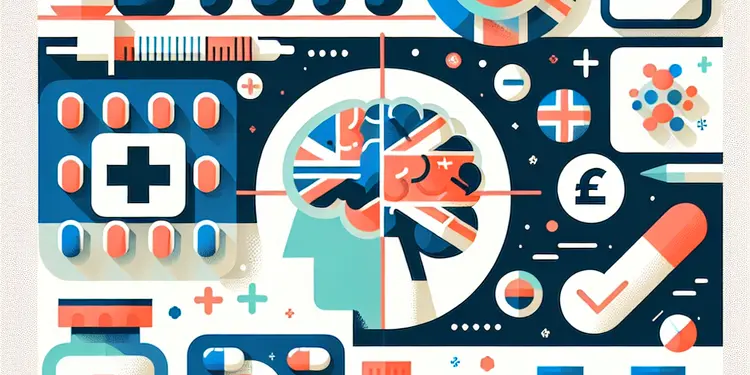
What is the treatment for bacterial meningitis?
Relevance: 28%
-

What are common treatments for ADHD?
Relevance: 27%
-

What treatments are available for shingles?
Relevance: 27%
-

What treatments are available for shingles?
Relevance: 27%
-

What are the treatment options for BPH?
Relevance: 27%
-
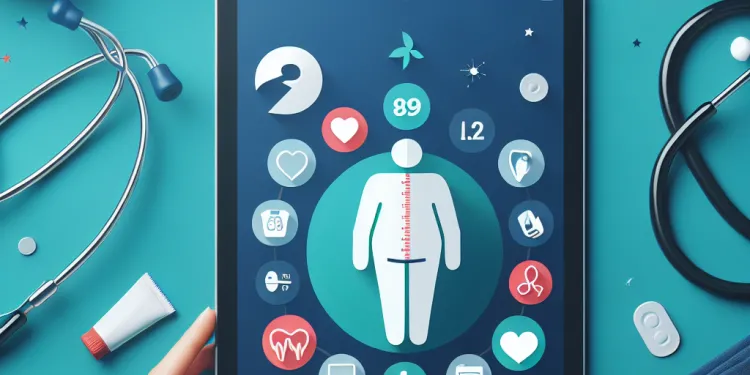
What treatments are available for obesity?
Relevance: 27%
-

The treatment approach for an eating disorder
Relevance: 27%
-
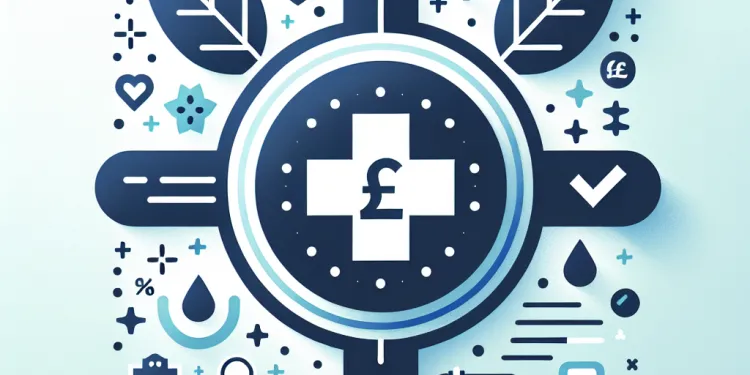
Are there treatments for West Nile Virus?
Relevance: 27%
-

What treatments are available for hypotony?
Relevance: 27%
-
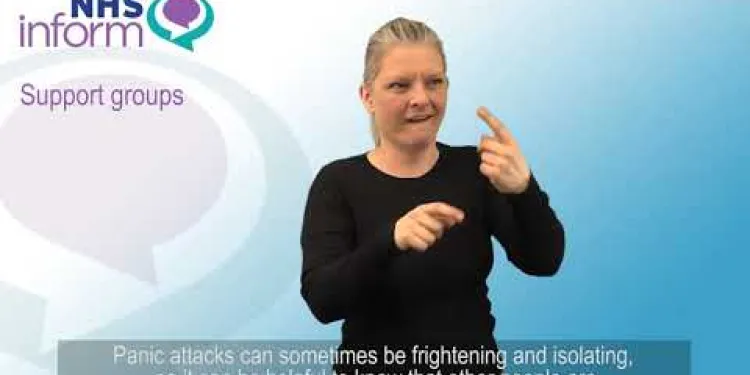
BSL - Treatment of panic disorder
Relevance: 27%
-

Are there treatments available for postnatal depression?
Relevance: 27%
BSL - Treatments for Insomnia
Understanding Insomnia
Insomnia, a common sleep disorder, affects many individuals in the United Kingdom. It can manifest as difficulty falling asleep, staying asleep, or waking up too early. Chronic insomnia can lead to significant distress, impacting daytime functioning and overall quality of life. Fortunately, there are various treatments available, including behavioural, pharmacological, and lifestyle interventions.
Cognitive Behavioural Therapy for Insomnia (CBT-I)
Cognitive Behavioural Therapy for Insomnia (CBT-I) is a highly effective treatment approach focusing on changing the thoughts and behaviours that contribute to sleep issues. It involves techniques such as cognitive restructuring, sleep restriction, stimulus control, and relaxation exercises. CBT-I can be accessed through NHS services or private practitioners trained in this method.
Pharmacological Treatments
Medications can also play a role in managing insomnia, particularly in more severe cases. Doctors in the UK may prescribe short-term use of sleep aids such as Z-drugs or benzodiazepines. However, these medications are typically recommended for short durations due to the risk of dependency. Over-the-counter sleep aids, such as antihistamines, may also provide relief but should be used with caution.
Lifestyle Modifications
Implementing lifestyle changes can significantly improve sleep quality. Adopting good sleep hygiene practices, such as maintaining a regular sleep schedule, creating a restful environment, and avoiding stimulants like caffeine and nicotine, can promote better sleep. Additionally, incorporating relaxation techniques such as mindfulness, meditation, or yoga can help reduce stress and enhance sleep.
Seeking Professional Help
If insomnia persists despite self-help measures, it's essential to seek professional advice. GPs in the UK can provide referrals to sleep specialists or mental health professionals who can offer tailored treatments. Also, NHS websites and local support groups can provide valuable resources and support for those struggling with insomnia.
BSL - Treatments for Insomnia
Understanding Insomnia
Insomnia is when it's hard for people to sleep. This can happen when you have trouble falling asleep, staying asleep, or waking up too early. Many people in the UK have insomnia. If it lasts a long time, it can make you feel very upset and tired during the day. But, there are different ways to help, like changing habits, using medicine, and other lifestyle changes.
Cognitive Behavioural Therapy for Insomnia (CBT-I)
Cognitive Behavioural Therapy for Insomnia (CBT-I) helps change the way you think and what you do about sleep. It teaches you to change your sleep thoughts and habits. This includes setting a good sleep schedule and relaxing before bed. You can get CBT-I help from doctors or private therapists who know this method.
Pharmacological Treatments
Sometimes, doctors give medicine to help with sleep, especially if it's really bad. In the UK, doctors might give you something like Z-drugs or benzodiazepines, but only for a short time. This is because they can be habit-forming. You can also buy some sleep aids from the store like antihistamines, but be careful and talk to a doctor about them.
Lifestyle Modifications
Making changes in your life can help you sleep better. Good habits include sleeping and waking up at the same time every day, making your bedroom cozy and calm, and not having drinks like coffee or smoking before bed. Relaxing things like mindfulness, meditation, or yoga can help you feel less stressed and sleep better.
Seeking Professional Help
If you still have trouble sleeping even after trying to help yourself, talk to a doctor. Doctors in the UK can help to find sleep experts or mental health experts for you. NHS websites and local groups can also give you useful information and help if you have insomnia.
Frequently Asked Questions
What is insomnia?
Insomnia is a common sleep disorder that can make it difficult to fall asleep, stay asleep, or cause you to wake up too early and not be able to get back to sleep.
What are the common causes of insomnia?
Common causes include stress, anxiety, depression, poor sleep habits, medical conditions, medications, and lifestyle factors such as caffeine or alcohol consumption.
How can I tell if I have insomnia?
Signs of insomnia include difficulty falling asleep, waking up frequently during the night or early in the morning, daytime sleepiness, irritability, and difficulty concentrating.
What are the treatment options for insomnia?
Treatment options can include behavioural therapies (such as Cognitive Behavioural Therapy for Insomnia), medications, lifestyle changes, and addressing underlying medical or psychological issues.
What is Cognitive Behavioural Therapy for Insomnia (CBT-I)?
CBT-I is a structured program that helps individuals identify and replace thoughts and behaviours that cause or worsen sleep problems. It is considered highly effective for treating chronic insomnia.
Are there medications that can help with insomnia?
Yes, there are several types of medications, such as prescription sleeping pills, melatonin supplements, and certain antidepressants that can help, but they are usually recommended for short-term use only.
Can lifestyle changes improve insomnia?
Yes, improving sleep hygiene through regular sleep schedules, creating a restful environment, reducing screen time before bed, and avoiding caffeine or heavy meals before bedtime can help improve sleep.
Is insomnia more common in certain age groups?
Insomnia can affect any age group, but it is more common in older adults due to changes in sleep patterns, lifestyle, and health conditions.
How does stress affect sleep?
Stress can lead to worry and anxiety, which can make it difficult to fall and stay asleep. Stress activates the body's nervous system, making it harder to relax.
Can exercise help with insomnia?
Regular physical activity can help regulate sleep patterns and reduce symptoms of insomnia. However, it's best to avoid vigorous exercise close to bedtime.
Are there natural remedies for insomnia?
Some natural remedies include herbal supplements like valerian root or chamomile, maintaining good sleep hygiene, and practicing relaxation techniques such as meditation or deep breathing.
Can technology affect sleep quality?
Yes, exposure to blue light from screens (phones, tablets, computers) can interfere with the production of the sleep hormone melatonin, making it harder to fall asleep.
What role does diet play in insomnia?
Diet can play a significant role. Consuming large meals, caffeine, or alcohol close to bedtime can disrupt sleep. Certain foods that contain tryptophan, magnesium, or melatonin can promote better sleep.
How long does it take to see improvements in sleep with treatment?
Improvements can vary; some people may notice better sleep within a few weeks, particularly with behavioural therapies like CBT-I, while others may take longer depending on the severity of their insomnia and the treatments used.
When should I seek professional help for insomnia?
If insomnia persists for more than a few weeks, affects your daily functioning, or if you have other health issues, it is advisable to seek help from a healthcare professional.
What is insomnia?
Insomnia means having trouble sleeping. It can be hard to fall asleep or stay asleep. People with insomnia might feel tired during the day.
Here are ways to help with sleeping:
- Go to bed at the same time every night.
- Avoid screens like TV and phones before bed.
- Try to relax before sleep, maybe listen to calm music.
- Ask an adult if you need help or if it keeps happening.
Insomnia is when you have trouble sleeping. You might find it hard to fall asleep, stay asleep, or you might wake up too early and can't sleep again.
What makes it hard to sleep?
Some things can make it hard to sleep at night. Here are a few common reasons:
- Feeling worried or stressed.
- Drinking coffee or sugary drinks late in the day.
- Big changes in your daily routine.
- Noisy or uncomfortable bedroom.
- Using phones or tablets before bed.
If sleep is hard, try these things:
- Listen to calming music.
- Read a relaxing book.
- Make your room quiet and cozy.
There are many reasons why people can't sleep well. Some reasons are:
- Feeling stressed or worried
- Feeling very sad
- Not having good bedtime habits
- Being sick
- Taking certain medicines
- Drinking too much coffee or alcohol
Here are some things that can help you sleep better:
- Try to relax before bed
- Go to bed at the same time every night
- Make your bedroom quiet and comfy
- Listen to calming music or sounds
- If you are worried, talk to a grown-up
How do I know if I can’t sleep well?
Here are some signs you might have trouble sleeping:
- It's hard to fall asleep.
- You wake up many times in the night.
- You wake up too early and can’t go back to sleep.
- You feel tired during the day.
If you think you have trouble sleeping, talking to a doctor can help.
Relaxing before bed and keeping a sleep schedule might also help.
If you have trouble sleeping, you might notice some signs. These signs can be:
- Finding it hard to fall asleep.
- Waking up a lot during the night.
- Waking up too early in the morning.
- Feeling sleepy during the day.
- Feeling grumpy or upset.
- Having trouble paying attention.
If you have any of these problems, try some helpful tools like listening to calm music or using a bedtime story app. These can help you relax and sleep better.
Ways to Help with Sleeping Problems
There are different ways to help with sleep problems. These can be:
- Talking therapies, like a special chat called CBT-I that helps with sleep.
- Medicines from a doctor.
- Changing some habits, like going to bed at the same time every night.
- Checking if other health problems are causing sleep issues.
It might help to talk to a doctor or therapist. They can help find what’s best for you.
What is CBT-I?
CBT-I helps people with sleep problems. It teaches how to change thoughts and actions to sleep better.
Here are some tips that might help:
- Keep a sleep diary to track sleep habits.
- Create a calm bedtime routine to relax.
- Limit screen time before bed.
- Use apps or calming music to help fall asleep.
CBT-I is a plan that helps people who have trouble sleeping. It helps them change thoughts and actions that make sleep problems worse. This can really help people who can't sleep well for a long time.
Do pills help you sleep better?
If you have trouble sleeping, there are pills that might help you. They are called sleeping pills. But you should talk to a doctor before you take them.
Here are some tips that might help you sleep better too:
- Go to bed at the same time every night.
- Make your room quiet and dark.
- Turn off screens like TVs and phones before bed.
- Practice taking deep breaths to relax.
Remember, a doctor can give the best advice for taking pills.
Yes, there are some medicines that can help you sleep better.
These include:
- Special sleeping pills from the doctor
- Melatonin, which is a natural sleep helper
- Certain medicines for sadness can also help
But remember, these are usually good only for a short time.
Using tools like a sleep diary or calming bedtime routines can also help you sleep better.
Can changing your habits help you sleep better?
Yes, you can sleep better by doing a few simple things. Go to bed and wake up at the same time every day. Make your bedroom quiet and comfortable. Turn off screens like phones and TVs before bed. Don't drink caffeine or eat big meals before sleeping.
Do some age groups have more trouble sleeping?
Some people have a hard time sleeping. They might wake up a lot or can't fall asleep easily. This is called insomnia.
Insomnia can happen to anyone, but it is more common in some age groups. Here, we will talk about which age groups might have more trouble sleeping.
If you are finding it hard to sleep, there are things you can try to help. You can have a bedtime routine, make your bedroom dark and quiet, and avoid screens before bed.
Talking to a doctor can also help if you can't sleep well.
People can have trouble sleeping at any age. But it happens more often in older people. This is because their sleep can change, how they live changes, and sometimes their health can cause trouble sleeping too.
How does stress affect sleep?
Stress means feeling worried or nervous. When you feel stress, it can be hard to sleep. Stress can make your mind too busy. It is like your brain is running a race and cannot stop. This can make it hard to fall asleep.
Here are some things that might help:
- Relax before bed. Try reading a nice book or listening to calm music.
- Take deep breaths. Breathe slowly in and out to help calm your mind.
- Talk to someone. Sharing your worries with a friend or grown-up can help.
- Make a bedtime routine. Doing the same things every night can tell your body it is time to sleep.
Feeling stressed can make you feel worried and scared. This can make it hard to go to sleep or stay asleep. Stress can make your body feel very awake, so it's tough to calm down.
Does moving your body help you sleep better at night?
Do you find it hard to sleep? Moving your body, like taking a walk or playing a game, might help. It's important to stay active to feel tired and sleep well.
Here are some tips:
- Do some fun exercises every day. It could be dancing, running, or playing in the park.
- Try to move your body earlier in the day, not too close to bedtime.
- Make a bedtime routine. Try to go to bed at the same time every night.
If you still can’t sleep, tell a grown-up. They can help you find other ways to sleep better.
Doing exercise can help you sleep better. It can stop you from feeling like you can't sleep. But don't do hard exercise right before bed, because it might keep you awake.
Can nature help with sleep problems?
Do you have trouble sleeping? Here are some simple, natural ways to help you sleep better:
- Warm milk or herbal tea: Drinking these can help you relax.
- Relax your body: Try deep breathing or gentle stretching before bed.
- Create a calm space: Make your bedroom quiet and comfy.
- Stick to a bedtime: Go to bed and wake up at the same time every day.
If you need more help, ask a grown-up or use relaxing apps or music.
Here are some ways to help you feel better:
- You can try herbal supplements like valerian root or chamomile. These are plants that help you relax.
- Make sure you have a good bedtime routine. Go to bed at the same time every night and make your room comfy for sleeping.
- Try doing things that help you relax, like meditation or deep breathing. This means sitting quietly and taking slow, deep breaths.
Does using technology change how well we sleep?
Using phones, tablets, or computers before bed can make it harder to sleep well.
Here are some ways to help:
- Stop using screens at least 1 hour before bedtime.
- Try using apps that make your screen light easier on your eyes.
- Read a book or listen to calm music to relax.
Looking at screens like phones, tablets, and computers can make it hard to sleep.
The blue light from screens stops your body from making a sleep chemical called melatonin. This can make it tough to fall asleep.
To help, try using tools like blue light filters on your devices or wear special glasses that block blue light. Also, try to stop using screens at least one hour before bedtime.
How does what we eat affect sleep problems?
What you eat can affect how you sleep. Eating big meals, drinking coffee, or having alcohol before bed can make it hard to sleep. Some foods can help you sleep well. These foods have things like tryptophan, magnesium, or melatonin.
To help you sleep better, try these things:
- Eat smaller meals before bed.
- Avoid coffee in the evening.
- Don't drink alcohol right before you go to sleep.
- Try eating foods like bananas, nuts, or warm milk. They can help you relax and sleep better.
How long does it take to sleep better with help?
People can see changes at different times. Some might sleep better in a few weeks, especially with methods like CBT-I. Others might need more time. It depends on how bad their sleep problem is and what help they are using.
When should I ask a doctor for help with sleep problems?
It is important to talk to a doctor if:
- You find it very hard to sleep at night.
- You feel tired all the time, even after sleeping.
- You have trouble staying awake during the day.
- You feel worried or sad because you cannot sleep.
Here are some things that might help you sleep better:
- Try to go to bed at the same time every night.
- Make your bedroom quiet and dark.
- Avoid using screens like a phone or tablet before bed.
- Try relaxing activities, like listening to calm music, before sleep.
Remember, it is okay to ask for help if you have trouble sleeping.
If you can't sleep well for more than a few weeks, if it's making it hard for you to do things during the day, or if you have other health problems, it's a good idea to talk to a doctor or a nurse.
Useful Links
This website offers general information and is not a substitute for professional advice.
Always seek guidance from qualified professionals.
If you have any medical concerns or need urgent help, contact a healthcare professional or emergency services immediately.
- Ergsy carfully checks the information in the videos we provide here.
- Videos shown by Youtube after a video has completed, have NOT been reviewed by ERGSY.
- To view, click the arrow in centre of video.
- Most of the videos you find here will have subtitles and/or closed captions available.
- You may need to turn these on, and choose your preferred language.
- Go to the video you'd like to watch.
- If closed captions (CC) are available, settings will be visible on the bottom right of the video player.
- To turn on Captions, click settings .
- To turn off Captions, click settings again.
More Items From Ergsy search
-

BSL - Treatments for insomnia
Relevance: 100%
-

BSL - Insomnia introduction
Relevance: 75%
-

BSL - Causes of insomnia
Relevance: 73%
-

BSL - Insomnia self-help tips
Relevance: 71%
-

Is insomnia a common side effect of weight loss drugs?
Relevance: 62%
-

Talking therapy 'should be offered before pills' for people with insomnia | NHS Behind the Headlines
Relevance: 61%
-

What are the side effects of Paillon treatment?
Relevance: 31%
-

Having chemotherapy and other treatments in the Day Treatment Unit
Relevance: 31%
-

Is CPAP the only treatment for sleep apnea?
Relevance: 30%
-

Is there a treatment for measles?
Relevance: 30%
-

Is there a treatment for measles?
Relevance: 30%
-

Are chiropractic treatments safe?
Relevance: 30%
-

Is Botox treatment expensive?
Relevance: 29%
-

Are chiropractic treatments painful?
Relevance: 29%
-

What is the treatment for appendicitis?
Relevance: 29%
-

Eating disorders: treatment
Relevance: 29%
-

What are the side effects of bowel cancer treatment?
Relevance: 29%
-

Is Paillon treatment a form of chemotherapy?
Relevance: 28%
-

What is Paillon treatment for cancer?
Relevance: 28%
-

Who developed the Paillon treatment?
Relevance: 28%
-

How is Paillon treatment administered?
Relevance: 28%
-

Is Paillon treatment FDA approved?
Relevance: 28%
-

Is a prescription required for Paillon treatment?
Relevance: 28%
-

Fertility treatments on the up, but not via the NHS
Relevance: 28%
-

What are topical treatments for psoriasis?
Relevance: 28%
-

What treatments are available for eczema?
Relevance: 28%
-

What is the treatment for chickenpox?
Relevance: 28%
-

Are homeopathic treatments covered by the NHS?
Relevance: 28%
-

Are inhalers the only treatment for asthma?
Relevance: 28%
-

What is the treatment for bacterial meningitis?
Relevance: 28%
-

What are common treatments for ADHD?
Relevance: 27%
-

What treatments are available for shingles?
Relevance: 27%
-

What treatments are available for shingles?
Relevance: 27%
-

What are the treatment options for BPH?
Relevance: 27%
-

What treatments are available for obesity?
Relevance: 27%
-

The treatment approach for an eating disorder
Relevance: 27%
-

Are there treatments for West Nile Virus?
Relevance: 27%
-

What treatments are available for hypotony?
Relevance: 27%
-

BSL - Treatment of panic disorder
Relevance: 27%
-

Are there treatments available for postnatal depression?
Relevance: 27%


